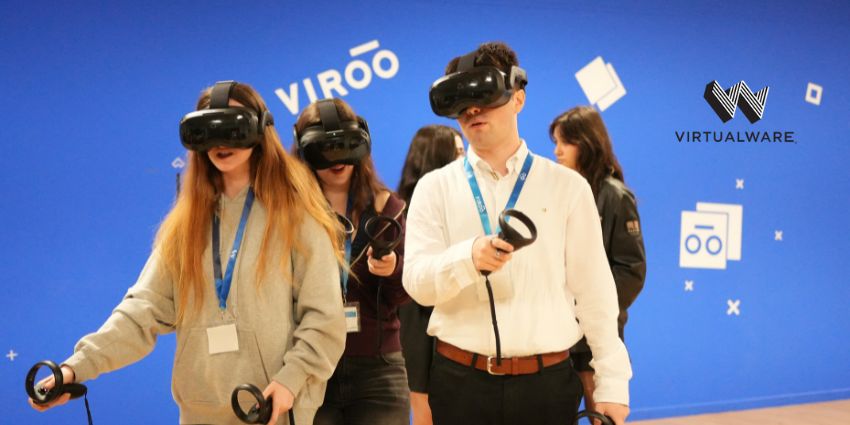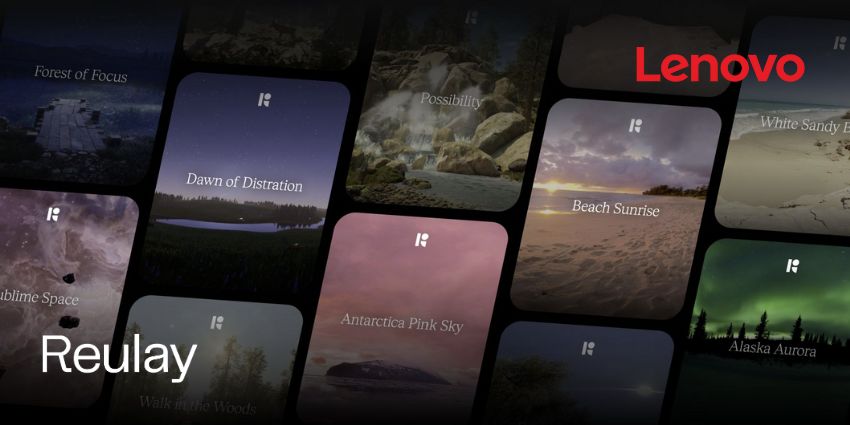This week was another busy period for XR; between two significant events, the XR world saw continued innovation towards increased adoption in the workplace and beyond.
At Industrial Immersive 2025, enterprise XR firms and industry experts gathered to explore how immersive solutions are helping to solve broad vertical challenges today.
Meanwhile, Mobile World Congress 2025 saw XR take a strong position as a leading emerging technology, following just behind the AI market.
These events and XR’s presence paint a strong picture of the industry in early 2025. There are many events to come this year highlighting the steady surge of AR/VR/MR.
Moohan Draws Eyes at MWC 2025
At MWC 2025, Samsung unveiled a range of products, from its mobile AI suite to new smartphones. However, the Moohan headset has become a focal point of discussion, with three headsets displayed at the event for attendees to view but not to handle.
This device results from a collaboration between Samsung, Qualcomm, and Google, where Qualcomm provides the chipset foundation, and Google deploys its widely discussed AndroidXR framework for the upcoming headset.
Although attendees could only glimpse the devices and shared limited details, Samsung’s confident presentation drew significant attention as the company firmly established itself in the XR space after years of speculation.
While MWC 2025 offered only a preview of the upcoming headset, here’s everything you need to know about the device.
VIVE Demos Mars Tracking Solution at MWC
At MWC 2025, VIVE Mars is showcasing its groundbreaking capabilities with an interactive demonstration that directly puts the power of professional virtual production in your hands. Using VIVE Mars CamTrack alongside a large LED wall, visitors can engage in real-time with a virtual backdrop of the National Art Museum of Catalonia, complete with interactive fireworks that burst from their fingertips.
By combining cutting-edge tracking technology with intuitive design, VIVE Mars eliminates the need for expensive physical sets and location shoots. This dramatic cost reduction enables independent creators to produce content with visual quality that was once exclusive to major studios.
The system’s real-time rendering capabilities allow directors and cinematographers to view their final shots immediately, removing the uncertainty associated with traditional green screen production. This streamlined workflow saves money and time, enabling productions to move faster while maintaining creative control.
Deckard Leaks Suggest Steam Deck Support
A trusted Valve insider, known as ‘Gabefollower,’ has revealed that “several people have confirmed that Valve aims to release a new standalone, wireless VR headset, codenamed Deckard, by the end of 2025.” According to their social media post, the package could cost around $1,200.
The connection to the Steam Deck OS is particularly intriguing for two reasons. First, Steam Deck users know that third-party plugins, such as the XREAL smart glasses portfolio, enable game streaming to XR devices. Second, because the Steam Deck is a mobile gaming device, it suggests that Deckard will likely be optimized to function as a mobile XR device rather than a tethered one like the Valve Index.
The leaker stated, “The first behind-closed-doors presentations could start soon. ” If this information is accurate, we may soon see the end product.
In 2025, XR devices will attract new investments and gain traction, with companies like Samsung entering the market and Meta investing heavily in its XR portfolio. This timing could be advantageous for Valve, as interest in the market is high, and their eyes are on their following product.
Interestingly, this news follows the recent debut of AndroidXR, a new operating system for XR products that’s already gained support from various industry leaders, including Lynx. Lynx has previously released a VR headset that didn’t capture much attention, but the Steam Deck operates on LynxOS. If Deckard is expected to work alongside the Steam Deck, it may require Lynx support, suggesting that the AndroidXR ecosystem could play a role in its future.
This possibility is further hinted at by a comment from Lynx founder Stan Larroque, who told Road to VR that the company’s existing devices will not adopt AndroidXR, “but future headsets from the company will.” This could potentially indicate a link to Deckard.







